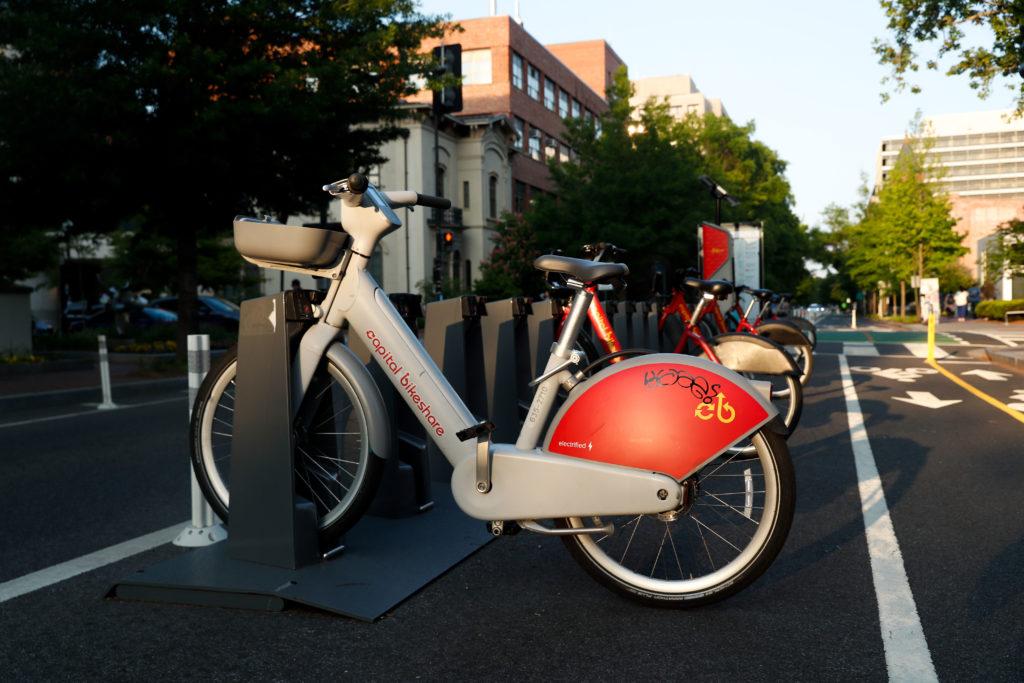Capital Bikeshare will add 900 additional electric bikes to District-area stations by Monday.
Capital Bikeshare, a bicycle-sharing system with over 5,000 bikes across more than 600 docking stations in the D.C. area, will have added 700 new gray e-bikes in D.C. and 150 in Fairfax and Arlington counties “by May,” according to a DCist report from last month. The latest e-bike model can travel 20 miles per hour and has 60-mile 500-watt batteries in their frames, LED lights and reflective paint.
D.C. Mayor Muriel Bowser said in a release last month that Capital Bikeshare will add 200 e-bikes to “neighboring jurisdictions.”
Capital Bikeshare distributed 80 units of its first e-bike model in September 2018, which is a dockless black e-bike that can travel 18 miles per hour. The Bikeshare program pulled the black e-bikes from circulation in April 2019 following concerns with the model’s braking system but returned them to the streets in July 2020. The black e-bikes now currently make up 300 of more than 5,000 bikes in circulation.
“Our newest e-bike has cutting-edge features that riders love, making Capital Bikeshare better than ever,” General Manager of Capital Bikeshare at Lyft Dominick Tribone said in the release last month. “We’re making it easier than ever for people to reach jobs, family, and friends with sustainable, climate-friendly transportation that gets cars off our roads.”
Single-trip Capital Bikeshare users can unlock the e-bikes for $1 and use them for $0.15 per minute. University students and “benefit-eligible” faculty and staff enrolled in GW’s Capital Bikeshare annual membership program for $25 per year can access the e-bikes for $0.10 per minute.
Capital Bikeshare reported that around 31,000 of its 200,000 bike trips were on the system’s 300 e-bikes in February. The District Department of Transportation said the agency hopes to bring 2,500 more e-bikes to the District over the next “several years” in a March statement.
Prior to arriving in the District, Capital Bikeshare introduced the new e-bike model to Chicago and New York City in fall 2021 and fall 2022, respectively.
The rollout of the new gray e-bike model comes as Mayor Bowser attempts to address bike safety in the District through her Vision Zero traffic safety program, which has “fallen short” of its work to end traffic deaths by 2024. D.C. officials have installed 45 miles of bike lanes since the program launched in February 2015, with a total of 108 miles of bike lanes and 30 miles of protected bike lanes.
Ten cyclists died on D.C. roads from 2017 to 2021, with 1,491 cyclist injuries reported.










